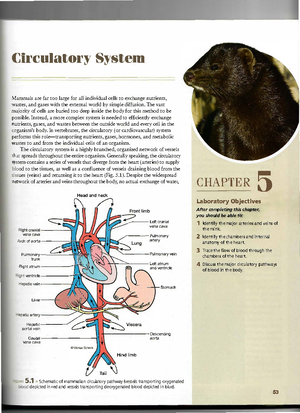- Information
- AI Chat
Was this document helpful?
Bioethics 00 Syllabus - Grade A+
Course: Anatomy and Physiology II (BIO-50B)
39 Documents
Students shared 39 documents in this course
University: Riverside City College
Was this document helpful?

BIOETHICS (SPRING 2020)
Instructor
Brendan Shea, Ph.D.
Course number
PHIL 1135-91
Contact Info
Brendan.Shea@rctc.edu
507-722-1146
Prerequisites
None (However, this is a college-level class, so you
should be comfortable with reading college-level texts
and writing responses to these. See below for more
details.)
Office
M2403Q
Class location
East Hall 103
Drop-in Office
hours
Mon 9-11; Wed 2-5
Class time
Wed 6-8:45 PM
Welcome to PHIL 1135: Bioethics! I’m your instructor, Brendan Shea (I prefer “Brendan”; “Dr. Shea” or “Prof. Shea” work if you are
feeling formal). This is the syllabus for the course. If you have short questions that are NOT answered here, email is generally the best way
to get ahold of me. For more detailed questions about the class, I’d encourage you to talk to me during office hours (either in person or
over the phone), or to set up an appointment.
Course Description: This course provides background ethical theories, principles and concepts necessary to grasp the ethical issues in life,
death, health care, biotechnology and the life sciences. Specific attention will be given to the social context of ethical decisions and there
will be an emphasis on critical reasoning and justification. Special topics that may be discussed include: definitions of life and death,
autonomy, paternalism, voluntary informed consent, rights, obligations, clinical trials, confidentiality, abortion and reproductive
technologies, cloning, stem cells, end of life issues, transplantation and fair allocation of limited resources. (3 cr, 3 hours lecture per week)
COURSE CONTENT AND LEARNING OUTCOMES
Outline of Major Content Areas:
1. Background Ethical Theories and Concepts
a) Consequentialism/Utilitarianism
b) Deontology/Kantian Ethics
c) Feminist/Care Ethics
d) Principles-Based Ethics
e) Casuistry
2. Critical Concepts
a) Autonomy/Competence
b) Voluntary Informed Consent
c) Rights/Interests
d) Distributive Justice
3. Areas of Applied Ethics (may include but are not
limited to):
a) Death and Dying
b) Clinical Trials/Human and Animal
Experimentation
c) Abortion & Reproductive Technology
d) Social Justice and Public Health
e) Biotechnology
Learning Outcomes (General): The student will be able to:
1. Identify and explain the major areas of ethical inquiry
with regard to life, death, health care biotechnology and
life sciences.
2. Understand logical forms of justification
3. Analyze moral concepts, principles and theories.
4. Explain major bioethical concepts and terminology.
5. Identify conclusions and premises of professional,
moral arguments.
6. Apply ethical theories to concenter solutions.
7. Formulate their own moral positions and justify them
in written arguments.
8. Appreciate multiculturalism and other world views.
Learning Outcomes (MnTC):
Goal 6/The Humanities-the Arts, Literature, and Philosophy:
The student will be able to:
1. Demonstrate awareness of the scope and variety of
works in the arts and humanities.
2. Understand those works as expressions of individual
and human values within a historical and social context.
3. Respond critically to works in the arts and humanities.
Goal 9/Ethical and Civic Responsibility: The student will be able
to:
1. Examine, articulate, and apply their own ethical views.
2. Understand and apply core concepts (e.g. politics,
rights and obligations, justice, liberty) to specific issues.
3. Analyze and reflect on the ethical dimensions of legal,
social, and scientific issues.
RCTC Core Outcomes. This course contributes to meeting the
following RCTC Core Learning Outcome(s):
• Critical Thinking, Students will think systematically by
integrating skills and using a variety of appropriate resources
and methods. They will (1) gather relevant information, (2)
make logical connections, (3) synthesize, analyze and
evaluate information, (4) articulate and defend ideas, (5) use
information to create innovative solutions, and (6) apply the
Scientific Method.
• Personal and Professional Accountability. Students will
take ultimate responsibility for achieving their educational
and personal goals. They will (1) exhibit honesty and
respect, (2) know policies and the consequences of their
actions, (3) prioritize tasks to maintain balance, (4) be active
learners, (4) face experiences and challenges with a positive
attitude, (5) seek resources and services as needed, (6)
maintain physical and spiritual wellness, and (7) take pride in
self and in one’s work.
REQUIRED COURSE MATERIALS
• Beauchamp and Childress, 2012, Principles of Biomedical Ethics, 7th edition (New York: Oxford University Press).
• This course will require that you have reliable, regular internet access (to complete online quizzes, etc.).
GRADING AND COURSE POLICIES
Grading Scale:: >=90.0 (A), 80.0-89.9 (B), 70.0 -79.9 (C), 60.0-69.9 (D), <60 (F).





